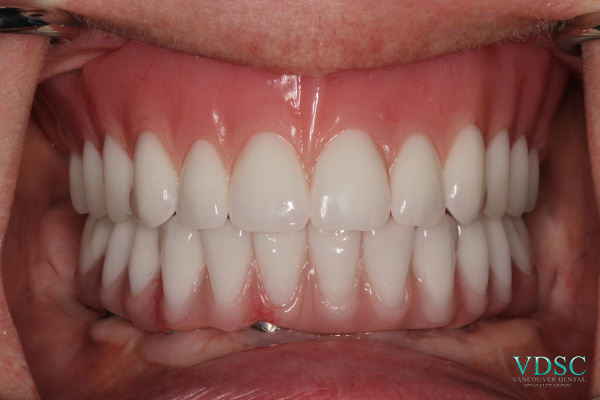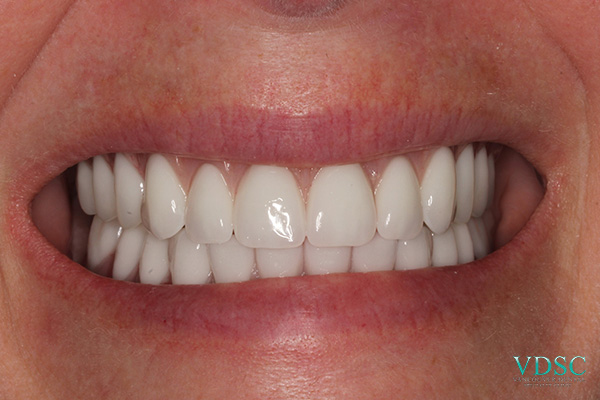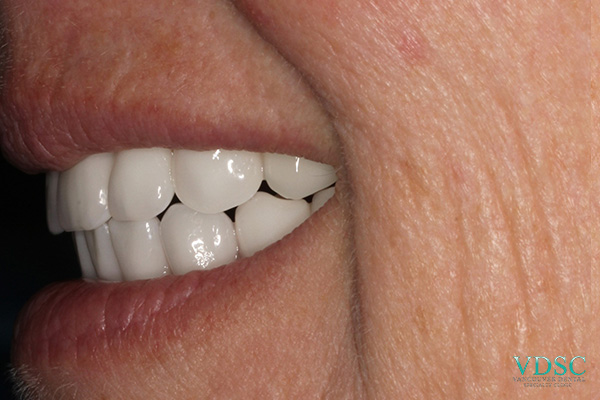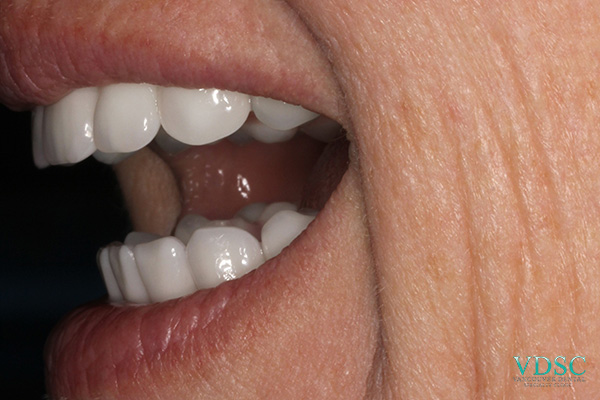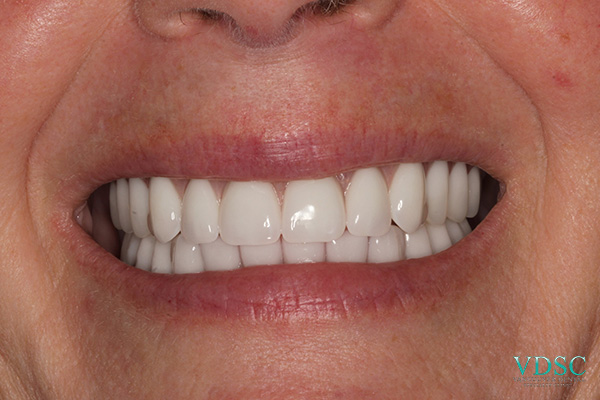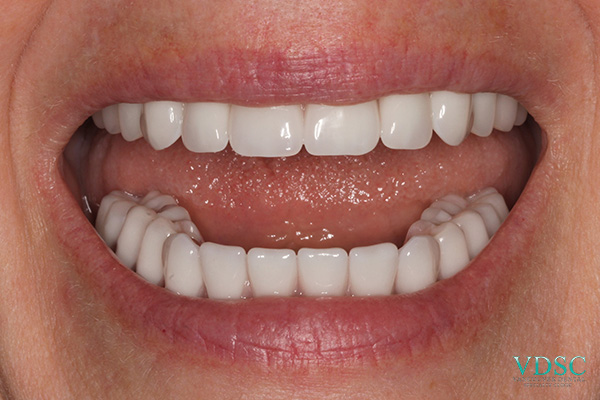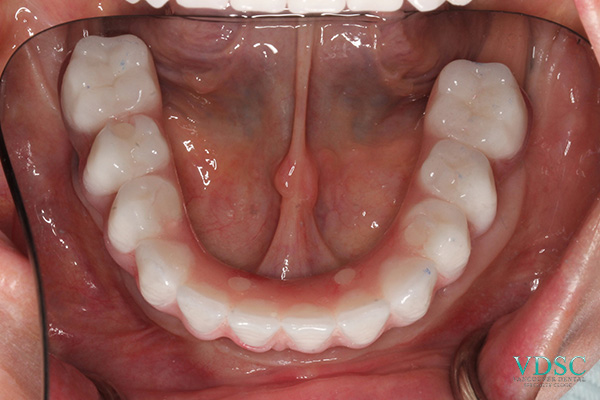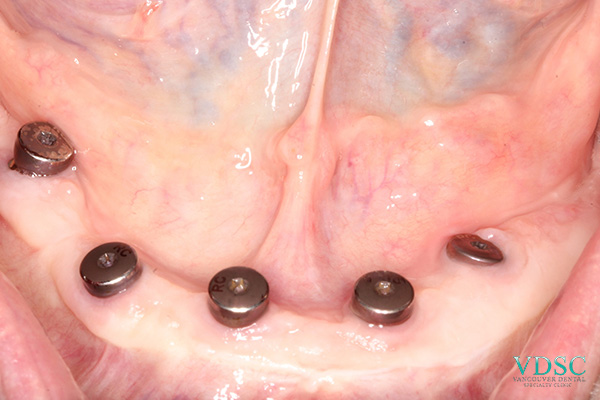
In Canada, over 20% of Canadians over 60 don't have any natural teeth left. And this is just senior citizens as well. Plenty of younger Canadians don't have the majority (or all) of their teeth.
As you'd expect, many of these people use dentures to replace their natural teeth. If you're one of them, then you might know the drawbacks of loose dentures.
If you're tired of them, then maybe you should consider full-mouth implant dentures/prostheses.
Are you interested in learning more about this type of denture? Then keep reading. In this article, we'll go over one of the best solutions for loose dentures and show you the advantages of choosing it.
What Is Full-Mouth Implant Restoration?
Full-mouth implant restoration is where you regain the use of your missing teeth through dental implants. While these implants can just replace individual missing teeth, they can also be used to replace entire rows, just like with dentures.
Implant assisted prostheses can be either fixed or removable. The greater number of implants, the more secure the denture would be.
Mini implants or regular dental implants can be used to improve the retention of the denture (implant overdenture), however, if your jawbone has enough width, regular implants are the better choice. They are somewhat stronger than mini implants and may give you better performance and longevity. Mini implants are a good choice as a temporary anchorage for orthodontic treatments or temporary retention for upper/lower dentures.
How Full-Mouth Dental Implants Work
Generally, you have 2 options: fixed implant-supported full bridges or removable implant-supported dentures. Implant-supported dentures are referred to as implant overdentures. The difference between these 2 is you can remove the dentures while you can't with fixed implant bridges. You'll want to speak with your dentist to figure out which option is better for you.
Also, you may hear the implant-supported full bridge referred to as All-on-4 or All-on-Four. This is because the bridges and dentures are supported by just 4 dental implants across either your top or bottom set of teeth. So, if you need full-mouth dental restoration, you only need 8 implant posts in total instead of 1 for each individual tooth.
For the process, the posts are first placed into your jaw. Then, you'll need to heal over the next 2 to 6 months. This allows your jaw to heal and bond together with the post, which gives the implant its stability. Immediate restoration of the implants (teeth in one day) would be possible, should the implants have shown enough stability at the time of surgery.
Advantages of Getting Full-Mouth Implant Restoration
If you get full-mouth implant restoration done, you'll enjoy several benefits that make them better than dentures. Here are some of the major advantages they have.
They're Natural Looking
Implants are specifically made to look like natural teeth. When someone wears dentures, others can usually tell because the false teeth are either too uniform and/or too unnatural in color.
With dental implants, porcelain or resin composite crowns are used. These materials can be matched so close in color to natural teeth that no one will be able to tell you're missing any teeth.
In addition, each crown is made to fit your mouth. This won't give you the "too-uniform" look.
They Fit Better
If you have to deal with things like a loose lower denture, it can be annoying when you're trying to eat, drink, speak, or smile. It can also create an unnatural look.
Because full-mouth implant restoration involves posts that serve as anchors for your bridge or dentures, you won't have to worry about them wiggling around. Not only will this make all the above activities easier, but it'll also feel more comfortable.
They're More Durable
Because there are posts going into your jaw bone that act as artificial roots, this makes dental implants much more durable than dentures. In most cases, implants should last you over 2 decades, provided you take good care of your oral health in the duration.
Compare this to dentures, which you'll have to replace every 5 to 7 years.
They'll Preserve Your Oral Health Better
When your natural teeth aren't present, your bone and gums will deteriorate over time. This is because your jawbone receives stimulation when you use your natural teeth. So, if you use dentures, bone resorption is likely to happen because the stimulation is missing.
In addition, the actual tooth is missing from the gum's surface. So, your gums will recede in response.
With full-mouth implant restoration, you'll be able to keep both your gums and jawbone healthy, as the implants will have artificial roots reaching deep into your jaw. This means you'll be able to keep enjoying your favorite foods for longer. Plus, your smile won't collapse.
They provide better function/Chewing ability
With implant assisted prostheses/dentures your diet can be extended to harder food such as salads, nuts, meat.
Ask About Getting Full-Mouth Implant Restoration
After reading about it, full-mouth implant restoration might sound like a good alternative for you. This can be especially true if you're frustrated with loose dentures and want something more stable.
In that case, the next step would be to speak to a dentist about dental restoration choices. Together, you can figure out if the best solution is full-mouth dental implants or not.
If you'd like to get full-mouth dental implants, then make an appointment with our prosthodontist now. We'll get back to you during our working hours.




